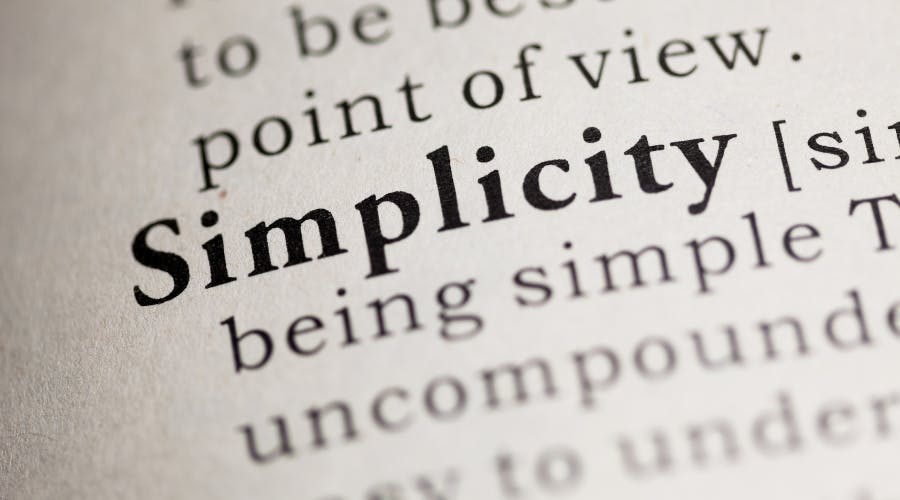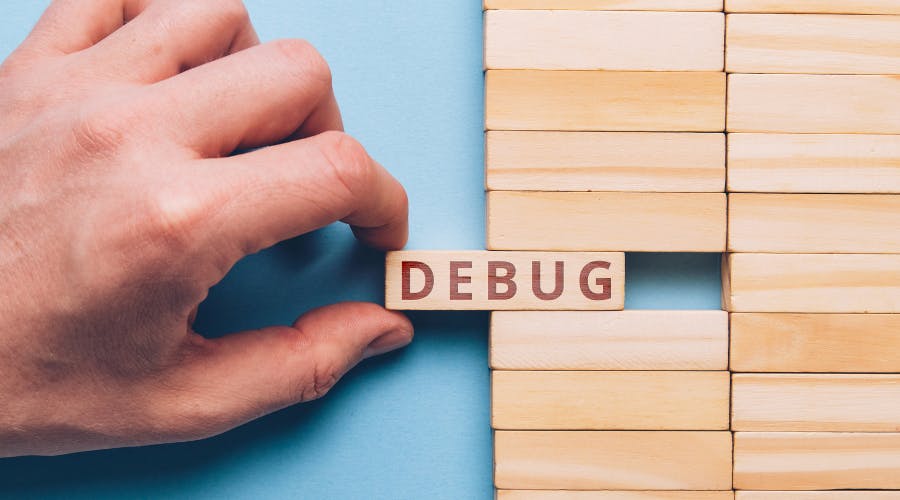Many developers, no matter how hardworking, find themselves facing roadblocks in their careers. Whether you're just starting out or a seasoned software developer, navigating through these common hurdles is important. This article explores some habits and issues that might be holding you back.
1. Understand the Problem
At the heart of programming lies problem-solving. Focus on the issues you're aiming to solve. Clearly define the boundaries of your solution, making it manageable and expressive.
Once these boundaries are set, explore both inside and outside the box. A crucial tip: Learn programming, not just programming languages. Knowing the best stack for software development helps understand the underlying problem to adapt seamlessly between projects.
2. Use the correct tool

Every programmer possesses knowledge of data structures, algorithms, design patterns, and deployment application tools.
Regularly refresh your skills by staying updated on industry news. Regarding deployment tools, explore all API options and understand why they use them.
Let your tasks dictate the tools, not the other way around. If you're breaking new ground, be open to developing new tools.
3. Keep your solution simple

Strive for simplicity in your solutions. Aim for easy comprehension, explainability, and maintainability for bug fixes or new features.
Seek the sweet spot where your product is user-friendly for novices and enables advanced users to perform clever tasks.
Remember: simple doesn't mean simplistic. You can have simple rules that enable complex behaviour.
4. Practice continuously
Becoming a proficient software developer is a gradual process. Embrace continuous learning to expand your skill set.
Contribute to open source projects, help friends' startups, provide feedback, fix bugs, and explore new programming languages, stacks, and tools. Consider sharing your knowledge through YouTube tutorials or blogging.
5. Learn to debug

Debugging skills accumulate over time. Embrace opportunities to debug, as the process is more valuable than fixing the bug itself.
Debugging enhances your understanding of code, intuition, and insights into software. Don't give up, even if it takes hours. If you need help, use StackOverflow and/or ChatGPT.
6. Exercise and rest

Programming demands both mental and physical endurance. Stay fit for better concentration. When stuck on a bug, exercise physically, like jogging or swimming, to refresh your mind.
Take regular breaks, and disconnect from tech devices periodically. A comfortable keyboard is also recommended for extended comfort.
7. Learn from Your Projects
Reflect on past projects to understand what worked and what didn't. Anticipate the skills needed for future projects.
Keep a record of interesting articles, read engineering blogs, and stay updated on industry knowledge. This awareness will guide you in choosing the right tools for your next project.
8. Take Breaks

Taking breaks is crucial. Staying back for a breather can do wonders when you're stuck on a problem. An example is to use the Pomodoro Technique. The Pomodoro Technique consists of short bursts of work followed by breaks.
These breaks not only refresh your brain but also supercharge your productivity.
9. Seeking Assistance
There's absolutely nothing wrong with not knowing something. Whether you're a college student or a seasoned developer, don't hesitate to seek help when you're unsure.
Dive into books, watch tutorials, and reach out to your seniors or fellow developers. If you have the expertise, extend a helping hand to others. It's about gaining knowledge and fostering career growth.
Many programmers shy away from asking for help, but it's not a sign of ignorance. It's a step towards understanding concepts more deeply.
10. Continuous Learning

The tech world is vast, with technologies evolving or becoming obsolete. Keep your radar tuned to emerging trends. Engage in side projects and stay informed about new frameworks, libraries, or languages.
Dive into blogs, write your own, and contribute fresh ideas to your company.
Remember, your learning journey doesn't stop when you enter the programming realm. Stay curious, stay updated, share your knowledge, and consistently explore to fuel your growth as a programmer.
11. Sharing Ideas and Knowledge

In the wise words of Albert Einstein, "If you can’t explain it simply, you don’t understand it well enough." As you become a proficient developer or programmer, don't hoard knowledge—share it.
Whether it's through writing blogs, teaching someone, or offering help, sharing your insights benefits others and enhances your skills. Embrace constructive feedback and criticism. It's a pathway to improvement. Be open to different opinions and learn from them.
12. Crafting Clean, Reusable, and Efficient Code
A key habit for any good developer is to write code that is clean, efficient, and easy to understand.
Follow the DRY (Do Not Repeat Yourself) principle: when you spot repetitive code, create a function to handle it. Documentation, comments, and a clean code structure are your allies.
Make your code understandable for other developers:
Use meaningful naming conventions, use Camel case, and ensure your CSS or JS is minified.
Compress images to keep your projects nimble. Thorough testing is crucial. While simplicity is often preferred, sometimes it's okay to write spaghetti code if it makes things clearer and more manageable.
Strive for a balance between simplicity and complexity.
13. Patience

Learning the ropes, getting comfortable, and truly grasping concepts takes time in programming. Whether you're a beginner or a seasoned developer, patience is your ally when tackling challenges.
Don't let frustration overwhelm you when faced with complex problems. Many beginners throw in the towel too early, feeling overwhelmed or scared. It's essential to understand that becoming an expert programmer is a gradual process.
Take small steps every day, and allocate time not just for coding but also for yourself, your family, and your hobbies. Success in programming is a marathon, not a sprint.
14. Navigating Co-Worker Dynamics
Becoming a skilled programmer isn't just about churning out code. It's also about collaboration and handling differing opinions. Respect and consider others' ideas, even if they clash with yours.
Effectively managing conflicting solutions and handling pressure is vital in a team setting. Many companies emphasize cultural fit for a reason. Be open-minded, avoid arrogance, and communicate effectively to address issues.
Seasoned developers, despite their expertise, sometimes falter in handling co-worker dynamics. Learn from your mistakes, stay open to constructive discussions, and foster a positive collaborative environment.
Conclusion
Cultivating effective programming habits is crucial for software developers seeking to enhance their efficiency and produce high-quality code.
The most recommended programming habits, including regular code reviews, version control utilization, and consistent documentation, contribute to a more collaborative and streamlined development process.
Embracing a proactive approach to problem-solving, continuous learning, and adopting coding standards further elevates a developer's skill set.
Prioritizing clear communication within the team and through well-commented code fosters a positive and productive working environment.
Ultimately, integrating these habits enhances individual performance and significantly contributes to the overall success of software development projects.
If you enjoyed this article, consider subscribing to my FREE weekly newsletter.

